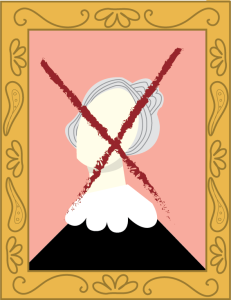Opinion: Be it resolved human nature is not violent
September 11, 2020
We are not born violent. Outside factors depict who we become. Like John Locke theorized, we are born with a “blank slate.” Some scientists propose that humans are innately violent. For example, David Carrier hypothesized that human hands evolved for us to be better fighters. However, there is evidence from other anthropologists, like Douglas Fry, proving that humans can make peace without resorting to violence.
Chimpanzees and bonobos are our closest relatives. Some scientists argue that humans, especially males, are inherently violent like chimpanzees. While male chimps fight for territory and females, bonobos tend to be more peaceful and share meat. Bonobos are female-dominated troops, so males may be less violent due to reduced competition for mating. It seems most violence from chimps stems from competition for limited resources. One study showed that bonobos are kind and generous to those outside of their groups. Behavior like this is not typically seen in chimps, who are aggressive to outsiders, while bonobos are usually not. Humans are more like bonobos than chimps: they want to collaborate and make peace with one another. In society today, most developed countries no longer need to fight for resources. Instead, we work together through trade and peace treaties.
The environment shapes our nature. For example, Brad Bushman and L. Huesmann studied how violence in mass media affects adults and children. They found that children will experience long-term effects of aggression because they mimic their environment. They explained that through classical conditioning, “a child may then react with inappropriate fear or anger in a novel situation that is similar to one that the child has observed in the media.” Adults may experience long-term effects of violence depending on their past exposure to aggression.
Viewing violence in mass media desensitizes us to it. We become less sympathetic to others and more antisocial. People are not innately violent: what we learn and observe can make us violent.
What we experience and learn makes us who we are. People become violent, angry, and fearful because of what they see in mass media and real situations. One literature review on how child abuse affects a child’s behavior revealed that “physically abused children have structural brain changes…” proving that outside factors shape our minds. Children who were abused tend to show the following signs: fighting with others, suicidal thoughts, poor grades, anxiety, depression, high probability to commit crimes such as underage drinking, drug use, etc. This means that our experiences help determine our behavior. Children who were abused may be more violent or rebellious because of their upbringing, not because they were born with a violent nature.
Some scientists also argue that genetics help determine our behavior. For example, genetics shape our personalities, and in some cases, affect our behaviors and attitudes. However, as we have different experiences over time, our personalities may change. Why? Because outside influences affect our behavior. Brent Roberts and Daniel Mroczek studied the changes in personalities from youth to adulthood. They explained that our personalities usually change as we grow older. For instance, someone who was an introverted teen may become more extroverted as they get older depending on their experiences.
In one experiment, scientists studied 3-month-old infants’ reactions to two different scenarios: one with a “Climber” trying to reach the top of a hill where a “Helper” pushed them up or a “Hinderer” pushed them down the hill, and the other control scenario with inanimate objects. Results showed that 10 out of 12 children valued the Helper while five out of 12 liked the Pusher-Upper inanimate object. The research proved that infants can interpret positive social cues and motivations, such as the Helper guiding the Climber up the hill.
The way we are raised and what we experience shapes us. We mimic our environment; if we see violence, we may become violent and reflect negative emotions.










